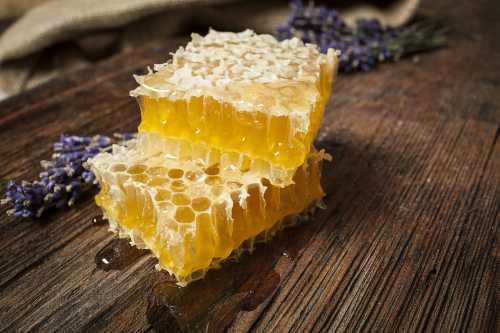Health Benefits Of Honey: Resources
Below are several links to scientific study with regard to the health benefits of honey, for information purposes only.

Please note this list is not exhaustive (the number of studies is vast, whereas only 10 are listed below. Some studies support statements of clinical benefits, others do not.
It's always best to seek multiple studies on any given area of interest, and check for robustness, such as inclusion of a control group, and applicability to human health.
If you are seeking information with regard to specific topic affecting you personal, please consult your doctor for advice if you are considering treatment options.
1. Palma-Morales M, Huertas JR, Rodríguez-Pérez C. A Comprehensive Review of the Effect of Honey on Human Health. Nutrients. 2023 Jul 6;15(13):3056. doi: 10.3390/nu15133056. PMID: 37447382; PMCID: PMC10346535.
2. Cianciosi D., Forbes-Hernández T.Y., Afrin S., Gasparrini M., Reboredo-Rodriguez P., Manna P.P., Zhang J., Bravo Lamas L., Martínez Flórez S., Agudo Toyos P., et al. Phenolic Compounds in Honey and Their Associated Health Benefits: A Review. Molecules. 2018;23:2322. doi: 10.3390/molecules23092322.
3. Cianciosi D, Forbes-Hernández TY, Afrin S, Gasparrini M, Reboredo-Rodriguez P, Manna PP, Zhang J, Bravo Lamas L, Martínez Flórez S, Agudo Toyos P, Quiles JL, Giampieri F, Battino M. Phenolic Compounds in Honey and Their Associated Health Benefits: A Review. Molecules. 2018 Sep 11;23(9):2322. doi: 10.3390/molecules23092322. PMID: 30208664; PMCID: PMC6225430.
4. Charalambous M., Raftopoulos V., Paikousis L., Katodritis N., Lambrinou E., Vomvas D., Georgiou M., Charalambous A. The effect of the use of thyme honey in minimizing radiation-induced oral mucositis in head and neck cancer patients: A randomized controlled trial. Eur. J. Oncol. Nurs. 2018;34:89–97. doi: 10.1016/j.ejon.2018.04.003.
5. Bardy J., Molassiotis A., Ryder W.D., Mais K., Sykes A., Yap B., Lee L., Kaczmarski E., Slevin N. A double-blind, placebo-controlled, randomised trial of active manuka honey and standard oral care for radiation-induced oral mucositis. Br. J. Oral Maxillofac. Surg. 2012;50:221–226. doi: 10.1016/j.bjoms.2011.03.005.
6. Paul I.M., Beiler J., McMonagle A., Shaffer M.L., Duda L., Berlin C.M., Jr. Effect of Honey, Dextromethorphan, and No Treatment on Nocturnal Cough and Sleep Quality for Coughing Children and Their Parents. Arch. Pediatr. Adolesc. Med. 2007;161:1140–1146. doi: 10.1001/archpedi.161.12.1140
7. Schell KR, Fernandes KE, Shanahan E, Wilson I, Blair SE, Carter DA, Cokcetin NN. The Potential of Honey as a Prebiotic Food to Re-engineer the Gut Microbiome Toward a Healthy State. Front Nutr. 2022 Jul 28;9:957932. doi: 10.3389/fnut.2022.957932. PMID: 35967810; PMCID: PMC9367972.
8. Cohen H.A., Rozen J., Kristal H., Laks Y., Berkovitch M., Uziel Y., Kozer E., Pomeranz A., Efrat H. Effect of Honey on Nocturnal Cough and Sleep Quality: A Double-blind, Randomized, Placebo-Controlled Study. Pediatrics. 2012;130:465–471. doi: 10.1542/peds.2011-3075.
9. Wallace A, Eady S, Miles M, Martin H, McLachlan A, Rodier M, Willis J, Scott R, Sutherland J. Demonstrating the safety of manuka honey UMF 20+in a human clinical trial with healthy individuals. Br J Nutr. 2010 Apr;103(7):1023-8. doi: 10.1017/S0007114509992777. Epub 2010 Jan 12. PMID: 20064284.
10. Amna Ahmed, Zujaja Tul-Noor, Danielle Lee, Shamaila Bajwah, Zara Ahmed, Shanza Zafar, Maliha Syeda, Fakeha Jamil, Faizaan Qureshi, Fatima Zia, Rumsha Baig, Saniya Ahmed, Mobushra Tayyiba, Suleman Ahmad, Dan Ramdath, Rong Tsao, Steve Cui, Cyril W C Kendall, Russell J de Souza, Tauseef A Khan, John L Sievenpiper, Effect of honey on cardiometabolic risk factors: a systematic review and meta-analysis, Nutrition Reviews, Volume 81, Issue 7, July 2023, Pages 758–774, https://doi.org/10.1093/nutrit/nuac086
Honey is not healthy for everyone
- It should be noted that honey is not to be given to young infants –
definitely not those under one year old, but seek advice from your
health practitioner.
Honey is a potential source of spores that can cause infant botulism – a rare but serious disease. - Please don't substitute sugar for honey in the hope that you can safely consumer more of it. Advice on this topic does change, so please consult your doctor.
Read about honey and diabetes.
Buying healthy honey
Remember, beekeeping practice varies. For this reason, if you are going to use honey, please source it preferentially from a beekeeper you can trust if possible, preferably local, or if not, purchase organic honey.
Organic honey is less likely to be contaminated with pesticides or other contaminants (some countries have had problems with imported honey).
What is the point in buying honey for its beneficial ingredients, if what you buy contains toxins?
Organic honey supports farming practices that are ecologically better for the environment, and hence honey bees and other pollinators.
If you found this page helpful or interesting, I'd really be grateful if you would share it with others - if not this page, perhaps another, such as Gardening For Bees.
Thank you so much :) .
